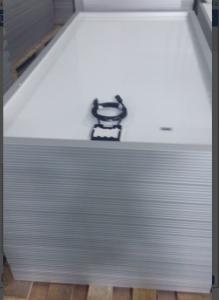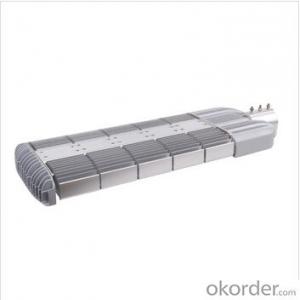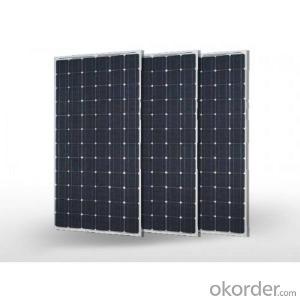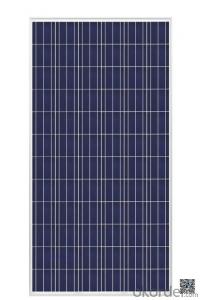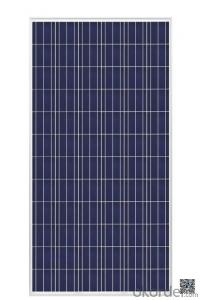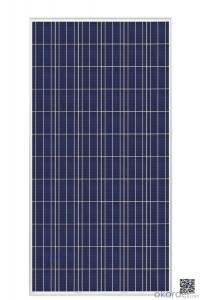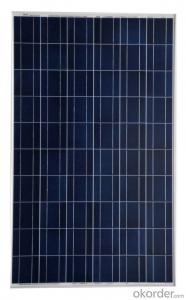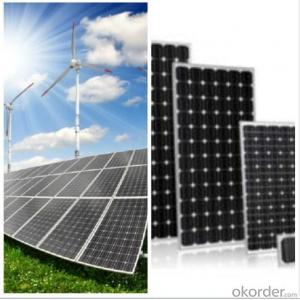Solar Panels Apex - High Efficiency 250W for Good Quality
- Loading Port:
- Shanghai
- Payment Terms:
- TT OR LC
- Min Order Qty:
- 2600 watt
- Supply Capability:
- 25000000 watt/month
OKorder Service Pledge
OKorder Financial Service
You Might Also Like
Specification
Product Description:
Solar Monocrystalline Series (90W-100W) l : High efficiency crystalline solar cell. Even if under the weak light, the solar module can produce maximum power output.
II Tempered glass (toughened glass): Anti-reflecting coating and high transmission rate glass increase the power output and mechanical strength of solar module.
III EVA and TPT: Using high quality EVA and TPT to prevent destroying and water.
Advantages of Monocrystalline Silicon Solar Panel
• CNBM Solar performance guarantees for 25 years
• 12 years guarantee for workmanship
• Timeliness of delivery
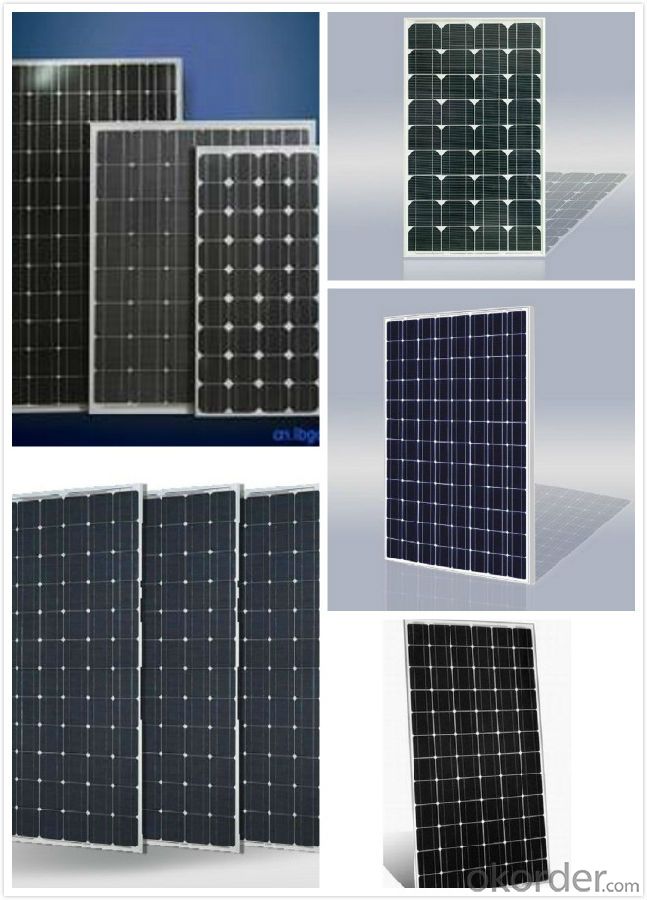
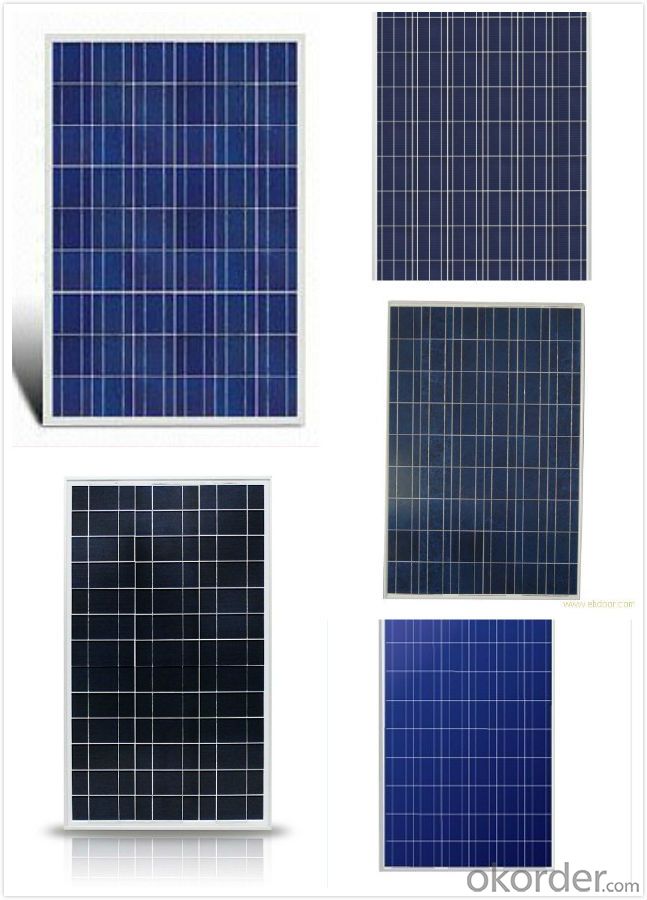
Specification of Solar Monocrystalline Series
- Optimal permutation on solar cells to keep enough heat diffusion, decreases hot spot effect.
- High quality and anti-ageing EVA, weather resistance backside raw materials assure reliable solar panels.
- Passed 5400Pa mechanical loads testing by UL, can withstand bad and high mechanical load working environment.
- With good sealed performance, moisture resistant, aging resistance, high/low temperature resistant, the inner terminals of our junction box owns good electrical performance transmission. Bypass diodes used can avoide hot spot effect and damages to panels. Output cables and mating connectors are safe and reliable for installation application. Adopt weather resistance, sealed, good sticky silica gel when assembling.
- Strict quality inspection on each procedure and 100% electrical performance test to meet power requirements.
- 0~+3% power tolerance.
- classification for all the panels in order to improve the integral performance of system and solar panel life span.
- TUV、UL、MCS、CE、ROHS、Golden Sun certified
- Underwriting of 25years output power warranty by The People's Insurance Company of China.
(1) Can you offer the test report of the module?
Sure. All the solar modules must pass necessary tests including EL test and ultra-red test and other visual test of the apperance, and the test report presents all the detailed data of the modules.
(2) How to confirm about the quantity and the type of solar module?
It depends on the solar system where you want to put into use the solar modules. We have experienced engineers to design for your order and you need to give more information to fix the details.
- Q: i check the diodes in the backside of solar panels it reads out to be 0.433 each give me the same result but i was amazed when i check out the last two one which on clamp meter screen give me ''0L'' what this means? is that diode have malfunctions??is this reasons that the output of solar has been decreased?
- First of all, make sure that you are taking readings in the dark (with the solar panel indoors and covered). 0.433 is a reasonable forward voltage for a Schottky diode. Ideally, it diode should read open one way (possibly OL for your meter), and 0.4 the other way. If it's reading OL both ways, the diode is bad. You can either unsolder it or cut it out and verify that it is bad.
- Q: Do solar panels float?
- With the Oceans rising as fast as they are, I hope so. LOL
- Q: I've found something called maximum system voltage 000v on my 0 w panel nameplate. Its impossible for 0w to have 000v, right?
- Contact the manufacturer of your panel(s) for the information you seek
- Q: Can solar panels be used in areas with high levels of seismic vibrations?
- Yes, solar panels can be used in areas with high levels of seismic vibrations. However, it is crucial to ensure that the solar panel installations are engineered and constructed to withstand the potential impact of seismic activity. Proper structural design, adequate mounting systems, and appropriate anchoring techniques can help mitigate the risks associated with earthquakes or other seismic events. Additionally, regular inspections and maintenance can help identify and address any damages caused by seismic vibrations to ensure the continued functionality of the solar panels.
- Q: Thanks
- Solar energy is a renewable energy resource and there are no fuel costs. No harmful polluting gases are produced. Disadvantages Solar cells are expensive and inefficient, so the cost of their electricity is high. Solar panels may only produce very hot water in very sunny climates, and in cooler areas may need to be supplemented with a conventional boiler. Although warm water can be produced even on cloudy days, neither solar cells nor solar panels work at night.
- Q: Are you a Solar Panel Specialist/Genius/Enthusiast?
- No, just an amateur. I guess that could be called an Enthusiast. I think most people find the topic somewhat interesting, some more than others. Why do you ask?
- Q: Can solar panels be used in developing countries?
- Yes, solar panels can be used in developing countries. In fact, they can be a highly effective and sustainable solution for providing electricity in areas where access to energy is limited. Solar panels are easy to install, require minimal maintenance, and can harness the abundant sunlight available in these regions. Additionally, solar energy can help reduce reliance on expensive and polluting fossil fuels, improve access to electricity for schools, hospitals, and homes, and contribute to the overall development of these countries.
- Q: Hello everybody, the area we are living has energy crises with no electricity available most of the time. What I am thinking is to buy a solar panel with other required accessories. Please note we have normally long sunny days most of the time during a year.Please advice installing solar energy system would supply energy 24/7? I have a television, a dvd player, a fan, 4 energy saver lights (2 watt each) and a laptop. Please also advice the specifications for the system to be installed and the points I need to ensure at the time of purchase. I think of buying a solid battery (not acidic battery)The forum is open for your kind suggestions.Thanks!
- I okorder /
- Q: I mean when light hits the solar panel where does the energy go and what does it become? Be specific.
- In a photo-voltaic cell, the energy of the light knocks electrons loose within a semiconductor, causing electrical current to flow. see science.nasa /science-news/sci... Some other kinds of solar energy plants use lots of mirrors to focus sunlight and boil water to drive a steam turbine and generate electricity.
- Q: My family moved into a house that came with solar power panels but they are not connected and don't really understand how to even begin.
- You need to know some electrical basics. You need to check if they are still working and determine the output voltage with the use of testers. They are just part of a system that includes other equipments as well like a controller, car batteries, inverters, diodes.
Send your message to us
Solar Panels Apex - High Efficiency 250W for Good Quality
- Loading Port:
- Shanghai
- Payment Terms:
- TT OR LC
- Min Order Qty:
- 2600 watt
- Supply Capability:
- 25000000 watt/month
OKorder Service Pledge
OKorder Financial Service
Similar products
Hot products
Hot Searches
Related keywords










